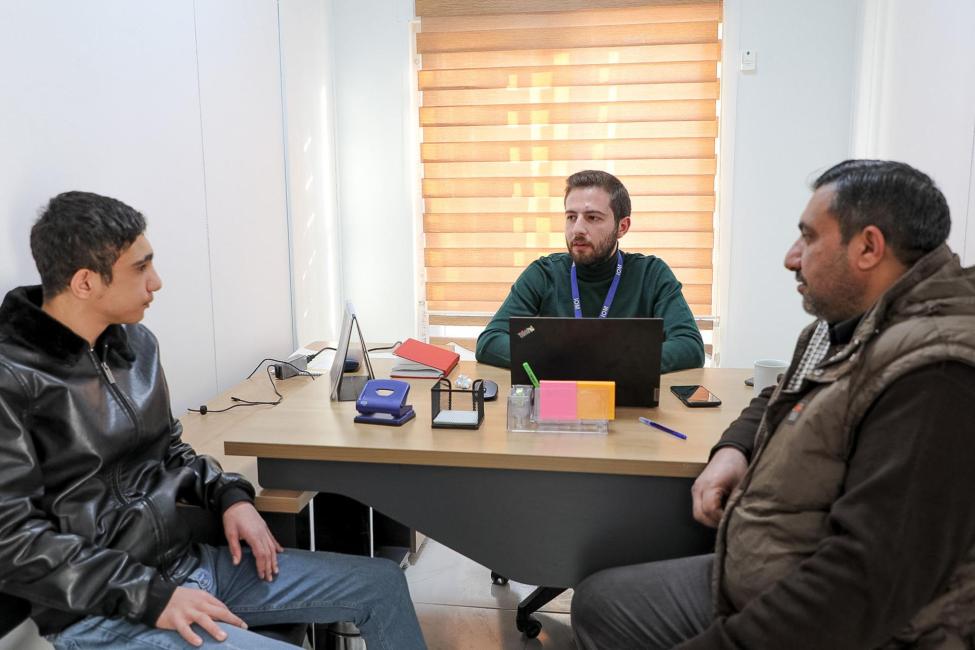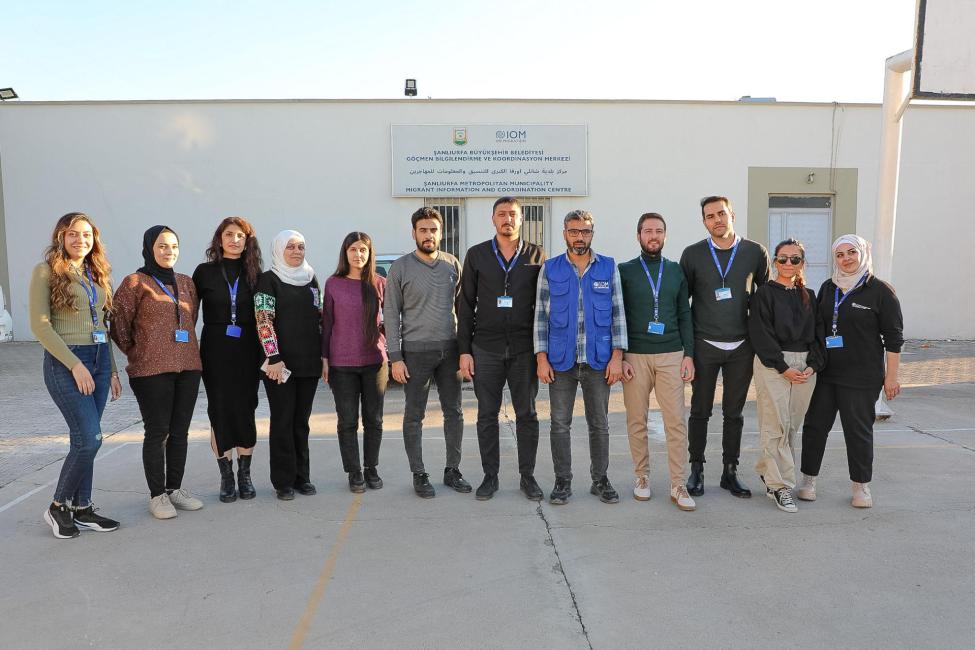-
Who We Are
WHO WE AREThe International Organization for Migration (IOM) is part of the United Nations System as the leading inter-governmental organization promoting humane and orderly migration for the benefit of all. IOM has had a presence in Türkiye since 1991.
About
About
IOM Global
IOM Global
-
Our Work
Our WorkAs the leading inter-governmental organization promoting since 1951 humane and orderly migration, IOM plays a key role to support the achievement of the 2030 Agenda through different areas of intervention that connect both humanitarian assistance and sustainable development. Across Türkiye, IOM addresses the full scope of migration issues, supporting and developing government capacity to manage migration.
Cross-cutting (Global)
Cross-cutting (Global)
- Data and Resources
- Take Action
- 2030 Agenda
Like millions of Syrians over the past decade, Abdulmajid’s life has been turned upside down by war.
“Fearing for my life, I fled from northern Syria to Türkiye in 2020.”
His decision to flee was a difficult one, leaving behind his wife and five children. He now calls Şanlıurfa home, a province that has welcomed over 300,000 Syrians like him.
He was relieved when his eldest teenage son Akram managed to join him. One step closer to his entire family reuniting, he thought.
Unfortunately, the joy of Akram’s arrival was soon dampened. “He started to feel pain in his heart. We learned he had a heart disease which, if left untreated, could be fatal.”
Around the world, migrants and refugees continue to face barriers in accessing healthcare, from non-inclusive health policies to lack of access to basic services.
Abdulmajid first brought his son to one of the the Migrant Health Centres (MHC) in Şanlıurfa, a medical centre catering to migrants and refugees. “We were told he would need treatment over several months. There were many challenges, especially the cost and the fact that the closest hospital where he could receive the treatment was in another province.”
The doctor directed them to the Şanlıurfa Municipal Migrant and Community Centre (MMCC), run by the International Organization for Migration (IOM) in coordination with the Şanlıurfa Metropolitan Municipality, which provides services and referrals to those in need.
“We started by liaising with a hospital in Gaziantep [the next-door province]. We shared Akram’s medical documents to confirm the availability of the treatment,” explains Kadir Gocebeler, Şanlıurfa MMCC’s Field Coordinator.
The next step? Cost. IOM works with a number of partners in cases of health care needs and, in this instance, was able to secure the Turkish Red Crescent’s assistance to cover the expenses.
The final challenge: travel. Syrians under Temporary Protection in Türkiye require a permit to travel to another province. “We coordinated with authorities in Şanlıurfa to ensure Abdulmajid and Akram received their permits, given that the treatment required monthly trips to Gaziantep,” expounds Kadir.
For the monthly trips, IOM further supported Abdulmajid's and Akram's transportation and accommodation.
Despite multiple layers of challenges to address, Şanlıurfa’s MMCC’s effective coordination and referral system helped Akram get the treatment he needed.
The Centre is one of six nationwide offering similar services, ensuring migrants and refugees are connected to needed support. Assistance offered by these Centres includes formal and informal education, protection and legal counselling, psychosocial support, skills and language training, and social services.
Furthermore, IOM and partner municipalities organize activities between migrants, refugee and local communities – offering the chance to interact, learn about one another, and build social cohesion.
Today, Akram is in the final stages of his treatment. He had to stop his studies at ninth grade but remains hopeful of going back to school.
He is taking things one step at a time, though. “For now, I am focusing on my completing my treatment. I will think about my future dreams after.”
Abdulmajid, meanwhile, hopes to soon find permanent employment. He had to stop work to take care of his son full-time, spending two weeks each month in Gaziantep.
More than anything, both wonder when they can see their family again. “Maybe one day, I will see my mom and siblings again,” says Akram.
“I miss them a lot. I want us to live like a family, like before,” echoes Abdulmajid. “It’s a difficult situation now, but one day, everything will be okay.”
Support through the Şanlıurfa Municipal Migrant and Community Centre is part of IOM Türkiye's Protection and Resilience programming, implemented in coordination with the Şanlıurfa Metropolitan Municipality and made possible by the U.S. Department of State’s Bureau of Population, Refugees and Migration.
Written by Miko Alazas, IOM Türkiye Media and Communications Officer


